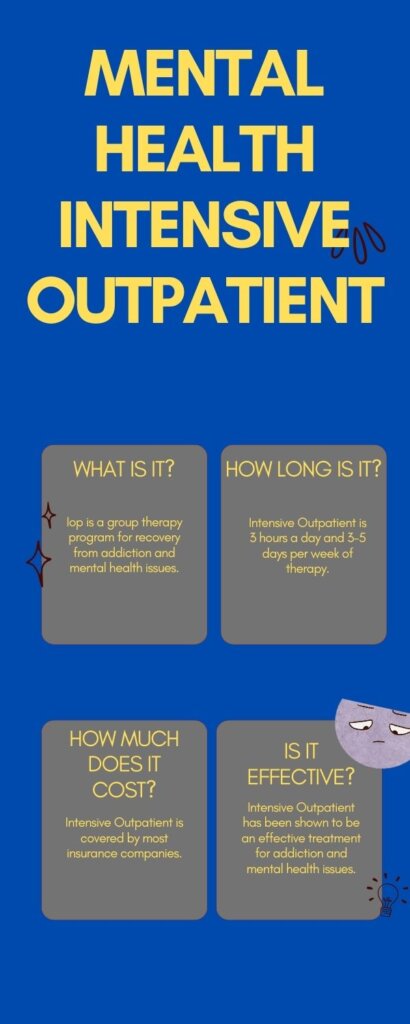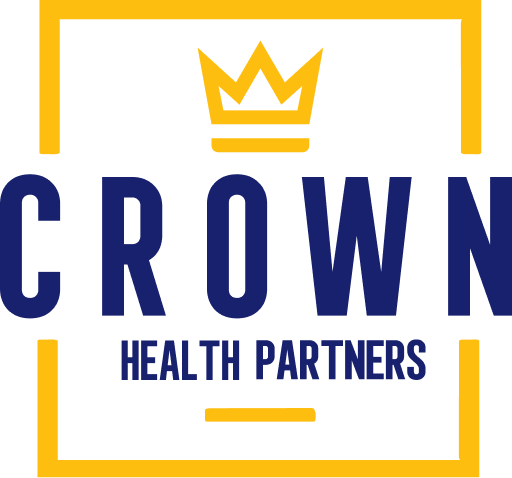You might want to prepare yourself for this because we are about to hit you with some gruesome statistics; don’t worry, we will also share the solutions!
About 33.8 million of adults in the U.S. received prescription medication for mental illness in 2020; these included issues such as anxiety, stress, bipolar disorder, and the most common type – depression, with it affecting about 8.3% population.
What’s even more worrying is that 32% of people with a major depressive episode also had serious thoughts of suicide…
Before this article takes any more dark and gloomy turn (these statistics can even send a normal person into depression), we are going to shift towards optimistic behavior and start discussing your options.
So, if you suspect any of the mental illness symptoms about yourself or anyone you know, you’ll know that seeking care is a lot easier than you think.
Our personal favorites forms of treatment are outpatient programs, which are actually beneficial because they not only treat an illness but also enhance a person’s skill, both latent as well as visible (more on that later).
In this article, we’ll discuss two different levels of treatment options for mental health support in southeastern Massachusetts, that can help you take a reconstructive and transformative journey. We’ll discuss what happens during these different levels of care, who they are recommended for, how long they last, and how much they cost.
Partial Hospitalization Programs (PHPs) – Sometimes Also Known As Intensive Outpatient Programs (IOPs)
Starting with the level of care that isn’t too much intensive as inpatient programs nor too relaxed as some outpatient programs tend to be.
PHP programs continue for 4-8 hours up to 5 days a week; they are sort of a boot camp, where you learn incredibly complex skills in a short matter of time, but for your mental health. And at the end of a highly rehabilitative and productive day, you get to return to the safe hearth of your home.
Who are partial hospitalization programs for?
PHPs or partial hospitalization programs are recommended for you if:
- You are seeking treatment for conditions such as anxiety disorders, obsessive-compulsive disorder (OCD), bipolar disorder (BPD), severe depression, post-traumatic disorder (PTSD), substance use disorder, or as recommended by your health care expert.
- Your mental health conditions are getting serious and aren’t manageable, or not seeing any improvement, in outpatient therapy sessions.
- Not experiencing active suicidal thoughts – in that case, seek hospital-based rehabilitation immediately.
What happens during a partial hospitalization program for mental health in southeastern Massachusetts?
During a partial hospitalization program, you get a treatment plan made specifically for you – this works perfectly well to fit into your schedule, thus making it easier for you to seek complete treatment.
During the hours of treatment, you’ll go through therapy sessions and return to your home afterwards so you can continue your everyday commitments. The various therapy sessions in a PHP might include:
- One-on-one therapy sessions with your counselor
- Group therapy
- Family therapy
- Medication management
- Creative therapies
- Educational classes
- Skills training
- Aftercare planning
How much do partial hospitalization programs cost and how long do they last?
PHP programs typically last 4-8 hours each day for about 5 days a week and the daily costs without insurance are $350-$450, according to 2016 statistics.
Some programs can cost $300 per day while others may charge around $1,300 daily – it depends on several factors including type of therapy, location of treatment, therapist’s experience, and others.
However, they do tend to be cheaper than inpatient programs – which can cost around $3,500 to $8,500, according to this report.
Outpatient Programs
Are you familiar with the feeling that hit right at 3 am that we need to turn our lives around? Unfortunately, not many of us are able to; this is mainly because we lack the structure and the motivation to do so.
Which is where outpatient programs come in; they have just the right amount of structure and relaxed routines that make it effortless to stick to the improvement procedure.
They enable you to continue your normal, everyday activities while attending therapy sessions.
Who should join an outpatient program?
Generally, anyone who is seeking treatment for a mental health challenge or a substance use disorder, or both, can join an outpatient program.
However, if you don’t have any of the conditions and want to seek a program that lets you improve on any of the aspects of life, you can join an outpatient program. For example, equine-assisted therapy lets you build a connection with a horse as your pet. Or mindfulness meditation or yoga are some programs that help you take care of your physical, mental, and spiritual health.
How long do outpatient programs last in mental health facilities in southeastern Massachusetts?
Outpatient programs are recommended for people who aren’t undergoing any detoxification program or don’t require round-the-clock supervision.
Outpatient therapy sessions are typically 45-60 minutes and are carried out once or twice a week. This flexible scheduling is perfect for individuals, with mild to moderate symptoms, to manage effortlessly with their daily responsibilities.
These programs do require self-motivation to attend regular sessions and practice skills outside of therapy. So, if you don’t lack in commitment department, and have plenty of support at home, outpatient programs are good for you. If not, partial hospitalization might be the better option for you.
What happens during mental health outpatient programs in southeastern Massachusetts?
It depends on the therapy itself, but you go about your everyday life just as you normally do and attend the therapy session in the outpatient program once or twice a week at your convenience.
You might get homework assignments in between these sessions which will include tasks such as noticing your thoughts and triggers, how they made you feel, what made you angry/happy or get a burst of various emotions, and how you actually responded.
Now, the therapy itself would focus on treatment components such as:
- Psychotherapy – which are talking therapy sessions that help you explore your thoughts, feelings, and behaviors, and develop appropriate coping mechanisms.
- Skills Training – which helps you practice and implement strategies for managing symptoms, emotions, and communication.
- Medication Management – which you will get after close collaboration with your psychiatrist, if needed, and would be adjusted accordingly for optimal effectiveness.
How much do outpatient programs cost?
As outpatient programs consist of various therapy sessions, the cost will vary depending on the type of therapy itself.
For example, an individual therapy session can cost $100-$250 per hour, on average. Whereas, group therapy sessions tend to be more cost-effective with the range being $50-100 per session.

Wrapping Up – PHP vs Outpatient Programs
Partial Hospitalization | Outpatient Programs | |
Level of care | High | Moderate to low |
Structure | Full-day schedule | Self-managed schedule |
Duration | 5 days per week, 4-8 hours | 1-2 times per week, 45-60 minutes |
Suitable for | Moderate to severe symptoms, complete hospitalization not required | Mild to moderate symptoms, to allow uninterrupted daily activities along with therapy |
Costs | $300-$1300 (depends on therapy), more expensive | $50+ (depends on therapy), more affordable |
To wrap up, we’d say anyone and everyone can benefit from an outpatient program. They let you build on skills that you already have and improve on factors that we lack in our lives. And if you’re experiencing mild to moderate mental health symptoms, outpatient therapies can be customized for you accordingly. Hence, they are perfect for a transformative mental health journey in southeastern Massachusetts.
However, if you think that you need a more intensive form of care, partial hospitalization would be the way to go. You can get daily care, more intensive than outpatient programs, and still get to go home at the end of the day. So, the right program would depend on your preferences and symptoms.
If you need more help in deciding the right form of treatment for you, reach out to Crown Health today to talk to your dedicated care representative – call 888.557.1552.
We’ll be happy to hear from you!
Keep in mind that if you or someone you know is experiencing severe symptoms, you should immediately seek crisis intervention. Hospital-based rehabilitation is more suitable in that case, call 888.557.1552 to get immediate care, without any delay!


